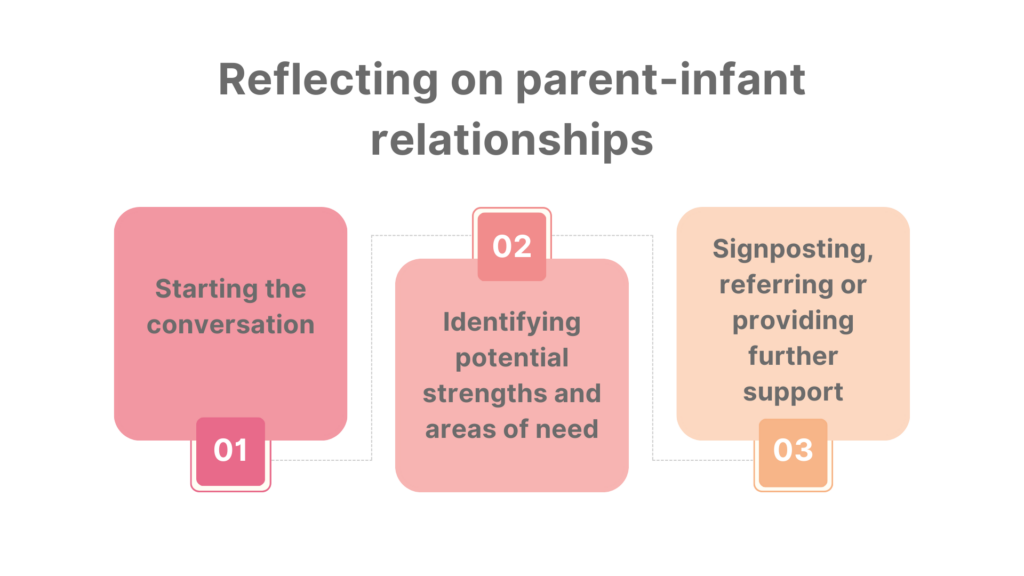Introduce
Our earliest days are defined by the relationships we have with those closest to us: our parents and carers. When working to support infants and their families within the first 1001 days, it is essential for practitioners to recognise parents and carers who may be having difficulty connecting with their baby and provide them with the necessary support.
The following guide titled ‘Reflecting on parent-infant relationships: a practitioner’s guide to starting conversations’ is a resource that offers insight into identifying and addressing parent-infant relationships challenges. This guidance helps to explore the role of observation and how a practitioner might build up a sense of where any difficulties might lie for an infant.
Reflecting on parent-infant relationships: a practitioner’s guide to starting conversations – GOV.UK
The 3 step framework in the guidance is summarised in the image below:

Develop
Watch the series of three videos below, featuring Dr. Madeline Marczak, Principal Clinical Psychologist at Manchester Foundation Trust. This introductory video emphasises the importance of listening to infants as part of the observation and assessment process:
The next video explores the barriers that can impact infant observation and the need for a direct approach which considers the challenges of the parent whilst also prioritising the needs of the infant:
The final video invites you to focus on parent-infant observation, paying attention to how the interaction feels and reflecting on next steps:
Reflect
Stop and Reflect: Consider a family you are working with:
– What external factors might be influencing the parent’s interactions with their infant?
– How do you ensure that the infants voice is heard and prioritised as well as the parents voice?






